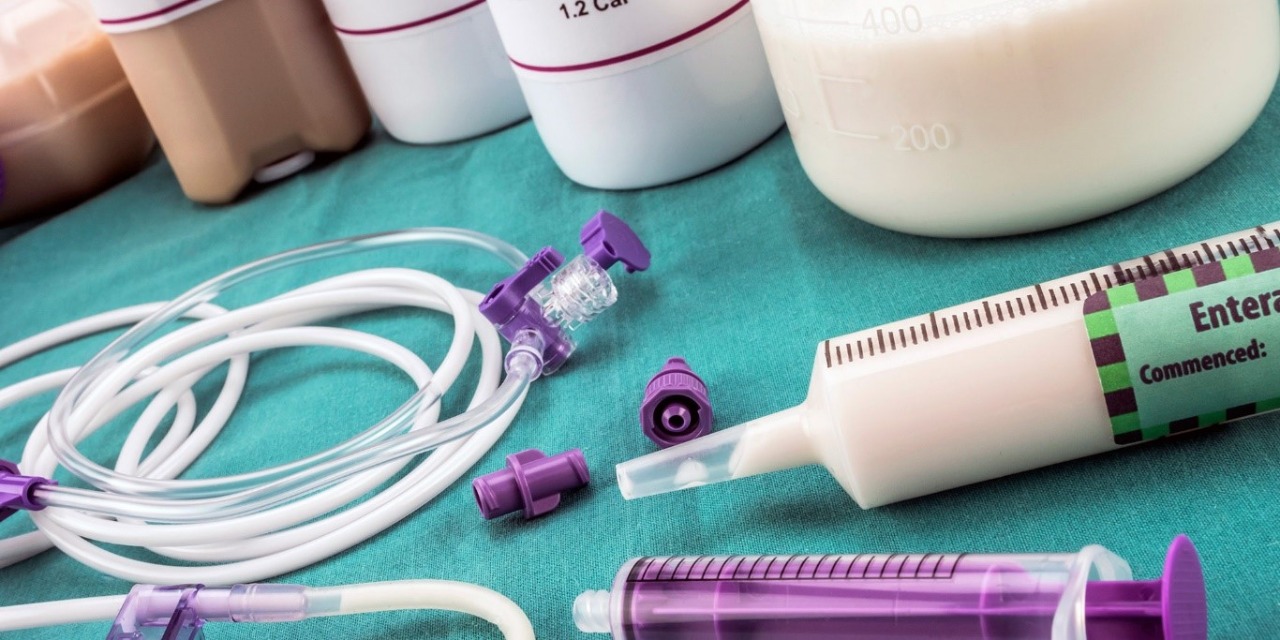
1. Polymeric balanced FS (PFS). Make up the main (basic) group of enteral nutrition (EN), designed for oral or probe feeding of patients of different categories. Allow for a long time to carry out the substrate supply of the body in all directions. Distinguish between PFS without AF (Nutrizon, Nutrizon Energy, Nutrien Standard, Berlamin Modular, Klitrin Nutricom Standard, etc.) and containing AF, created on the principle of “all inclusive” (Nutrizon Energy with dietary fiber, Nutricom Fiber, etc.). Even though the above SPs belong to the same group when choosing (especially when it is necessary to carry out a relatively long EN), we should pay attention to macro- and micronutrient composition, because they have some differences, which suggests that other things being equal, they can be differentiated depending on the specific clinical situation.
For example, in pronounced phenomena of hypercatabolism (severe polytrauma, trauma, burns, sepsis, etc.), when there are significant losses of nitrogen, FS with high protein content of high biological value (Nutrizon) is preferable. In cases of impaired digestion and liver failure, in the absence of specialized clinical nutrition, FS with whey proteins (Nutrien Standard) or soy proteins, which are relatively easy to digest and have a relatively higher amount of branched-chain amino acids (valine, leucine and isoleucine) than caseinates, are more appropriate.
2. Oligomeric (semi-elemental) balanced FS – contains protein hydrolysates, easily digestible short-chain triglycirides, highly hydrolyzed maltodextrin, as well as all the essential micronutrients (liquid ready-to-use Peptisorb and powdered Nutrien Elemental, Peptamen, Nutrilon Pepti, Alfare). They are intended for EN as a basic FS for both intracavitary (maldigestion) and parietal (malabsorption) digestion disorders. The main indication for their prescription is poor tolerance of polymeric FS by patients.
It is most often observed in cholestasis of any origin, insufficiency of external pancreatic secretory function (chronic pancreatitis, cystic fibrosis), portal hypertension, in exudative enteropathy syndrome (celiac disease, intestinal lipodystrophy, intestinal lymphangioectasia, intestinal lymphoma) and short bowel syndrome, in severe enteritis and severe inflammatory diseases of the colon (Crohn’s disease, noninfectious ulcerative colitis).
3. Special metabolically directed (organ-specific) FS – have an adapted chemical composition, considering the most significant metabolic disorders, which are caused by varying degrees of organ failure. The use of these mixtures promotes targeted correction of the existing metabolic dysfunction.
In disorders of carbohydrate metabolism, specialized metabolically directed FS are widely used. Pharmaconutrient efficacy of such PS is characterized primarily by the following indicators:
• Glycemic index
• Content of antioxidants
• Chromium and manganese content
• Presence of isoflavonoids, folic acid, vitamin B12
• Choline content
• Quantity and quality composition of dietary fiber
Liver failure. Specially designed for these patients Hepa-type PS have a high content of essential amino acids and, above all, branched-chain amino acids (leucine, isoleucine, valine – 9: 5: 4) and a low content of aromatic amino acids (phenylalanine, tyrosine, tryptophan) and methionine (Nutrien Hepa, Hepamin). The main purpose of prescribing such specialized FS is to stop catabolic orientation of metabolism and increase Fisher’s index.
Renal insufficiency. Now in Russia for nutrient support patients with renal insufficiency there are specialized powdered PS – Nutrien Nepro and Nutricom Renal, as well as Renilon – liquid, sterile, ready-to-use preparation for oral administration. All these preparations have significantly reduced potassium, sodium, phosphorus, and vitamin D content.
In severe respiratory failure (lung ventilation, acute respiratory syndrome) it is better to use FS with lower content of carbohydrates with high respiratory rate, and increased content of antioxidants (retinol, tocopherol, carotenoids, ascorbic acid, selenium). To some extent these requirements are met by a specialized PS Nutrien Pulmo, in which the proportion of carbohydrates is significantly reduced (up to 30% of nonprotein calories) and significantly increased the proportion of fat (70% of nonprotein calories); 50% of the fat component is short chain triglycirides.
4. Modular FS. This is an enriched concentrate of one or more macro- or micronutrients (protein ENPIT, Supro 760, Berlamin MCT module, Berlamin Protein module, Glutamine module, Nutrinorm, etc.). It should be noted at once that modular FS are not balanced and should not be used for probe feeding as an independent EN. They can be used as a supplement to a balanced FS to change, for example, the macronutrient composition (increase protein content or energy value), as well as an additional source of food to the usual medical diet to increase its biological value.
Sourse
